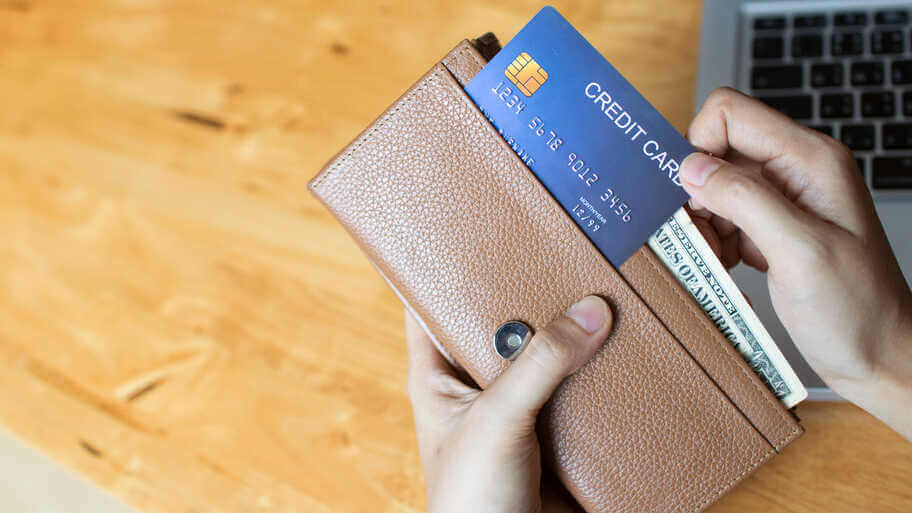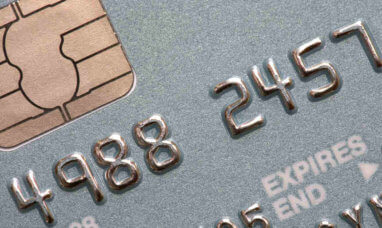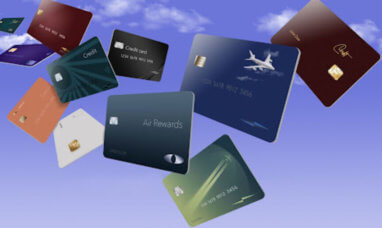While it’s easy to use a credit card, using it the best way is another story. A credit card is an excellent tool for earning rewards from purchases, building your credit score, or financing purchases you can’t afford out of pocket. But to get these benefits from your card, you need to know the best practices to get the most from your credit card.
Misusing your credit card can also get you into insurmountable credit card debt, cost you money in interest charges, or damage your credit score.
Want to get the maximum benefit from your cards and avoid major credit card pitfalls? Follow these six rules for using credit cards the right way.
1) Don’t Forget to Make Your Monthly Payment on Time
One key thing you can do to avoid unnecessary charges or credit score damage is to make on-time payments every month. Your credit card company may report late payments to the credit bureaus, which can stain your credit history. These late payments can have a major impact on your credit score as 35% of your FICO credit score is determined by your history with credit card payments.
However, using your credit card to build up a history of on-time payments is a great way to build good credit. Having a solid credit score could save you money in the long run by making you eligible for lower rates on loans and insurance. So, building a good credit score should be one of the main goals of having a credit card.
Even one missed payment could lower your credit score, so be sure to have reminders or automatic payments set up each month. Even if you can’t afford to pay off your credit card in full each month, it’s always best to at least make the minimum payment.
2) If Possible, Pay Off Your Full Balance
Paying off your entire credit card balance can save you interest and boost your credit score. So, you should pay off the full balance of your credit card any time you can afford to do so.
Credit cards typically have high interest rates. If you are only making minimum or partial payments on your balance, you’ll end up spending more money on credit card interest. But, if you pay off your full balance before it’s due every month, you’ll never pay any interest.
Paying off your balance in full also helps your credit score by lowering your credit utilization ratio. This ratio factors into your credit score, so reducing it can boost your credit score.
3) Don’t Carry a Large Balance
Another way to maintain a low credit utilization ratio is by avoiding carrying a large balance on your credit card.
Your credit utilization ratio measures the percentage of your available credit that you are using. So, if you have a credit limit of $1000 and have $400 on your balance, that’s a 40% credit utilization ratio (without considering other debts or lines of credit you may have).
Keeping your credit utilization ratio under 30% will help you build a good credit score. In fact, 30% of your FICO credit score is determined by your credit utilization ratio.
To keep this ratio low, you should make sure that the balance on your credit score is less than 30% of your credit limit. For example, if you have a credit limit of $2000, you should carry a balance of less than $600.
This doesn’t mean you can’t use your card for large purchases. Just make sure you pay off your balance, or pay at least enough to get your balance under 30% of the limit, on time. Rather than waiting for the deadline, it’s best practice to pay off large purchases you make on your card as soon as possible.
Best Credit Cards of February 2026
4) Create a Plan to Track Your Credit Card Debt
There may be times when it is necessary to spend more on your credit card than you can pay back at the end of the month. This is not the end of the world. However, it’s important to make a plan for how to pay this debt off and to change how you use your credit card in the future.
Creating a plan to track and pay off your debt is one of the only solutions to credit card debt. Having debt and late payments hurts your credit score. However, if you consistently pay off your credit card debt going forward, you can rebuild or boost your credit score. This is one of many reasons that having a plan to track your debt is so important.
There are a number of techniques that can help you pay off your bills. Budgeting is one of the easiest and most effective ways to do so. You can also apply for a balance transfer card with O% APR. You can move your debt to this card and avoid interest charges for a specified period while you pay off the debt. There is also a strategy of paying off the smallest debts first, known as the snowball method. As long as you have a plan in place, you’ll find a technique that is right for you.
If you keep using your card with no plan to tackle the payments, your debt will eventually pile up out of control. The most effective way to conquer debt is to make a long-term plan and commitment to paying it off.
5) Know the Perks and Rewards of Your Credit Card
Due to the competitive nature of the credit card industry, each card will likely offer you a number of benefits, whether that be miles, points, or access to exclusive airport services and lounges.
Before signing up for a credit card, make sure to do your research and pick one with benefits that suit you best. For instance, an airmiles card won’t make sense for you if you never fly.
When you get your card, make sure to either get a guide or search for one online. This will give you the information necessary to make sure you are collecting and using your credit card’s benefits correctly.
Never be afraid to contact your credit card company to learn more about your credit card.
6) Learn How to Optimize Your Card’s Rewards
Once you understand what benefits your credit card provides, you should learn how to optimize them.
While you will be passively earning rewards and benefits no matter what kind of purchases you make, some purchases will earn you more points depending on your card. For instance, some points That means that different kinds of purchases offer you more rewards. If you have more than one card, you’ll want to use different cards for the purchases that will give you the most points in return.
After you know how to earn points in the most optimized way, you’ll want to know how to redeem them optimally as well. Each card can redeem points at different values in different places, so make sure you do your research to find out where you can best spend your hard-earned credit card points.
Final Thoughts
If you always plan ahead and make sure that you never miss or delay your credit card payments, then you should already be ahead. It’s important to always think about how you are using your credit card so there is never a balance that can’t be paid off. Paying off your balance as quickly as possible, ideally at the end of the month, is key to building credit.
Your credit card, or cards, also come with unique perks and reward systems, and it’s important to take advantage of them to get the most out of your credit card. Optimizing your rewards will help you avoid debt in the long run, as well.
By following these simple rules, you’ll start to effectively build your credit and won’t put yourself in a position of jeopardy by getting credit card bills that are out of your budget.
Featured Image: Megapixl








